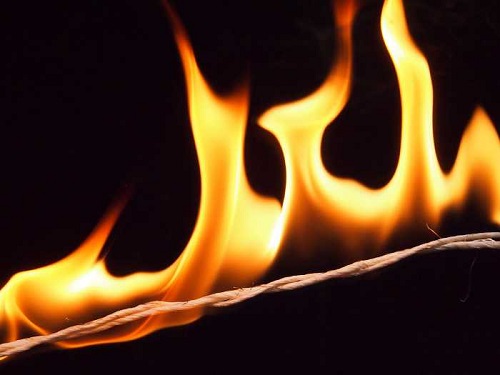FWP:
SETS
CANDLE: {39,1}
JIGAR: {2,1}
The two lines show enjambment. The lover longs for a state in which 'flame' would demand or require, as in the case of (or literally 'with the aspect of') a candle, 'fiber-runningness' down as far as the 'liver-pulse'. The wick of a lighted candle steadily carries the flame down along its own 'fiber', guiding the flame ever deeper into the candle's heart (or 'liver-pulse') while its heat burns and melts everything in its path until it finally consumes the candle entirely.
Perhaps the lover no longer feels such 'heat of passion', and wistfully longs to know 'again' [phir] its deadly ravages; for another case of such nostalgia, see {234}. Or perhaps the lover does feel just such a 'heat of passion' building up, and only longs for it to reach its fatal culmination quickly and put him out of his misery.
Is this vivid imagery enough to sustain the verse? Well, not at any very high level. But the verse does also offer a nice touch of wordplay: davānī
looks exactly like (and sounds almost like) divānī , a shortened form of dīvānī
, 'madness', that is used when poets need it for metrical reasons. (For a Mirian example, see M{949,6}.) And although
the verse makes no specific reference to madness, the lover's 'heat of passion'
is never all that far from 'madness in every fiber' in any case.

Nazm:
That is, I long for that heat of passion the fire of which, like the flame of a candle, would do 'fiber-runningness' down to the liver. To say 'the pulse of the liver' is not devoid of elaboration and [a need for] special pleading [tasāmaḥ], because there's no pulse in the liver. But here he has taken 'pulse' in the meaning only of 'vein', and by 'liver' is meant the inner part of the breast. In this aspect [ṣūrat], there's no unattractiveness in saying 'pulse of the liver'. (206)
== Nazm page 206